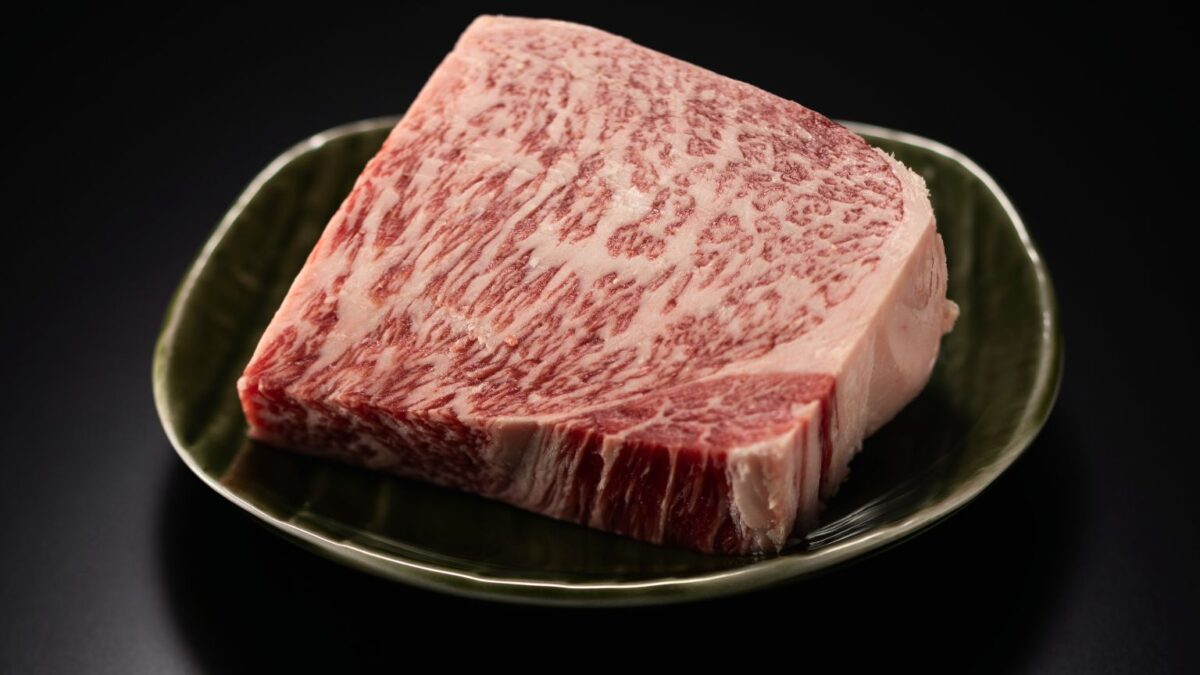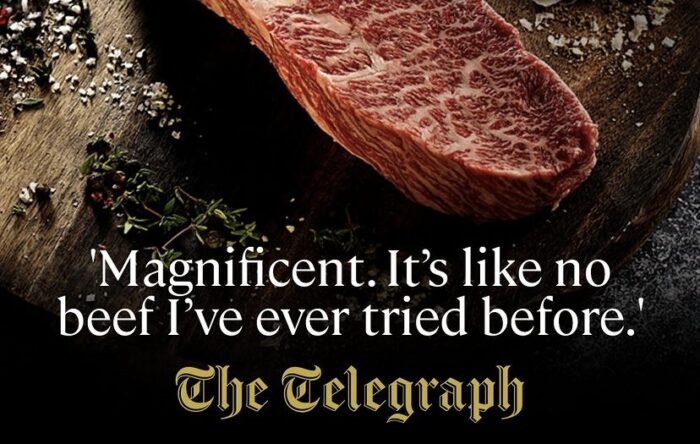
As The Telegraph investigated the abuse of the term ‘wagyu’, their journalist talked to Wyndford Wagyu about the science and labour of love that goes into producing some of the finest grade wagyu beef in the world.
Questioning how consumers can discern the difference in provenance is very valid, when the term wagyu is used for budget burgers in supermarkets as well as cuts of beef worth hundreds of pounds in restaurants. The main problem, they explain in their investigative piece, is that wagyu has become a ‘catch-all’ phrase, no matter how pure or diluted the wagyu is.
Wagyu is no longer exclusively available at great expense in a particular restaurant that imports from a particular farmer in Japan, it’s now readily available. The downside of that is that a piece of meat that has very little in common with the highest possible A5 Japanese marble scores, is being marketed and sold as wagyu too.
Of course what makes full-blood wagyu such a culinary experience is that unmistakable rich melt-in-your-mouth unami flavouring, only possible from the existence of extensive marbling in the meat. Marbling declines the more that bloodlines are diluted with other breeds or types of cow, and with the popularity of wagyu ramping up and demand increasing, cross-breeding has lead to a real increase in the amount of product available that isn’t really considered wagyu any longer by those in the food and farming industries.
When looking for the absolute closest full-blood Japanese wagyu in Britain, The Telegraph found their way to our wagyu farm in Shropshire where they met our herd of wagyu cattle, relaxing peacefully on thick straw beds. The full herd are genomically tested when they are calves, so we are able to proudly state that our herd is 100% full-blood wagyu. Across the whole herd, DNA is logged and traced to Japanese bloodlines to ensure our wagyu is of full-blood pedigree.
‘At Wyndford, they won’t sell anything as wagyu if it falls below a marble score of nine. The marble score tells you how much intramuscular fat can be found within the meat (as opposed to just around the outside). In Japan, anything between 8 and 12 is considered excellent.’
Marble scores are recorded through a piece of technology that captures an image of the meat to ensure accuracy, and the image is sent to Japan for analysis. It was a proud moment to have some of our recent wagyu awarded a marble score of 15, which really emphasises how much care, attention and passion goes into producing the finest wagyu here at Wyndford. Although for some, a marble score if 15 is actually too good, with such intense rich flavours brought on by the intramuscular fat.
To thank the journalist for visiting, we of course provided some produce to enjoy at home, including our award-winning Denver wagyu steak, and the reaction that rounded off the written piece in The Telegraph was rewarding to say to the least…
‘At home, I cook a beautifully marbled 200g Denver steak from wyndford which retails at £47. I’m instructed to fry it in a deep pan on a searing heat and not for long. Then rest, slide and sprinkle with salt. The result is magnificent. Rich and sweet, with an almost chocolatey, coffee-like flavour, it is perfectly soft. It’s strangely familiar – yet like no beef i’ve tried before.’

To read the full article, click here if you have a membership to The Telegraph.